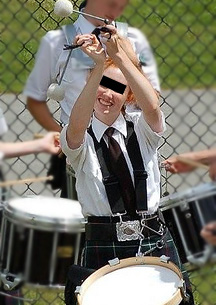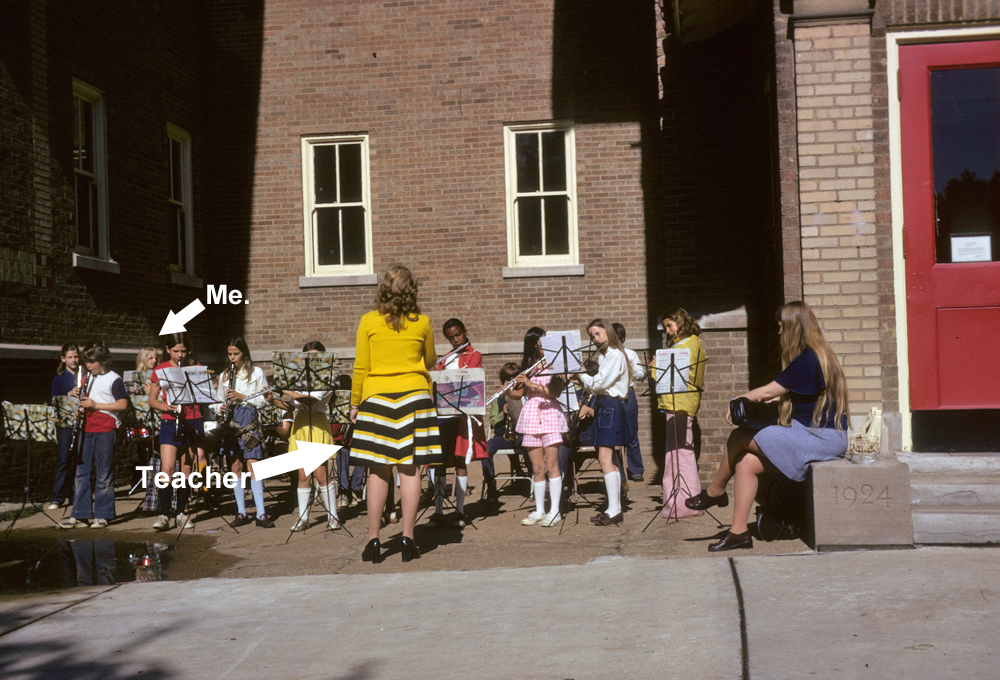For the parents
By Andrew Berthoff
![The author, age 13, competing in the Grade 3 March at the 1977 Kansas City Highland Games. The great John Wilson is the judge. Strangely, Wilson mentioned the performance in his memoir, "A Professioanl Piper in Peace and War." [Photo Rowland Berthoff]](https://www.pipesdrums.com/storage/2012/06/Berthoff_Andrew_KC1977_03.jpg)
So, here are a few tips, especially for the parents of young pipers and drummers who might be struggling with the decision to allow their boy or girl to continue with what will become a life-long involvement.
“It can be easy to lose sight of the fact that your child is making music. It’s art from nothingness. Like fireworks, it’s beautiful for a second, and then it’s gone forever. And your kid is creating it to the best of their ability.”
Piping/drumming prepares them for life. Your son or daughter will be surrounded by adults from every background, every profession, every ability. They will learn to conduct themselves in a mature way and have the benefit of weekly interaction with very smart people. Religion or social status does not exist in piping and drumming. The music is the great equalizer. Your boy or girl is more likely to appreciate people for their skills and character rather than discriminate or prejudge.
Piping/drumming creates lifelong friendships. Your child will meet other kids his/her age within the band, at competitions and at summer schools. These friendships will last forever. And wherever your son or daughter goes, he/she will find instant friends in the piping community.
Your child will always be “the piper” or “the pipe band drummer.” Do not underestimate the value of being in this exclusive club. It will help your kid stand apart from all of the other mundane hobbyists. Listing “bagpipes” on a university application or resume will be noticed and remembered, and virtually everyone has some sort of positive piping-related connection. It’s an immediate common bond.
If all else fails, there’s always piping/drumming. Once your child becomes good at their art, it is a constant safety net. Your kid can always find paid gigs or teach beginners either part-time or even professionally. Piping at ceremonies is increasingly popular. And once your child learns rudiment-based pipe band drumming, other drumming will be easy in comparison.
Your child will learn to fail. Sounds strange, but it’s a great skill to possess. I’ve said before that even Willie McCallum or Jim Kilpatrick – winningest competitors who they may be – have had far more non-first-prizes. In our competition-based world, your boy or girl will learn to accept defeat, learn from mistakes, and work harder to be better next time. Unlike junior’s football team or dance group, there are no medals in piping/drumming for those who don’t earn a prize.
Competition is preparation for real-life pressure. Standing solo before a wizened judge can be a knee-shaking thing. Delivering when your band-mates are counting on you is even more nerve-racking. In the beginning, you might consider this unnecessary pressure for your child, but understand that each time he/she competes and improves with each event, it is preparation for that university interview, the class presentation, the job interview, or the seminar for colleagues. Once you’ve stood at the trigger at the World Pipe Band Championships or climbed the boards at a big solo event, that real-life stuff is cake.
It’s music. Because of the competition-driven nature of what we do, it can be easy to lose sight of the fact that your child is making music. It’s art from nothingness. Like fireworks, it’s beautiful for a second, and then it’s gone forever. And your kid is creating it to the best of their ability. Don’t ever forget that that is a true miracle more valuable than anything above.
So, I hope these points are useful to parents of young pipers or drummers delving into our little world, which, once seen in a bigger perspective, is full of benefits for life in general.
What do you think? Your thoughts are always welcome. Please use our Comments tool below.














 The
The 















